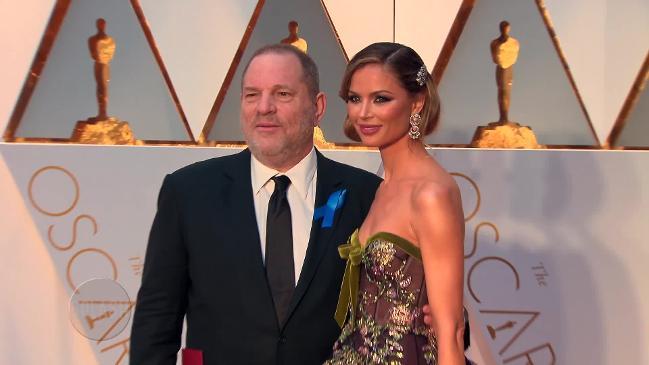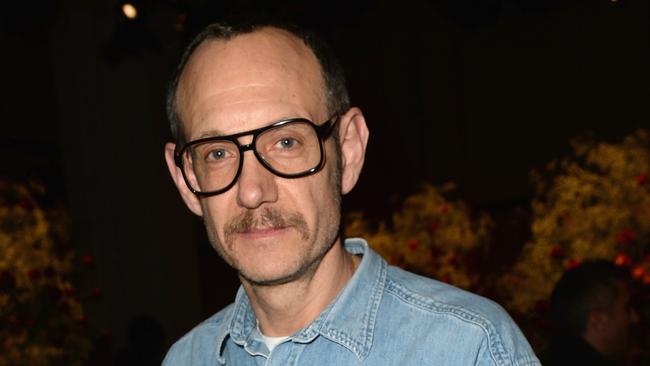The scale from Weinstein to simple sexism
FINALLY, a long overdue and global conversation about the prevalence of sexual harassment and assault has started. Where it’s going to end, though, is anyone’s guess, Karen Brooks writes.

Rendezview
Don't miss out on the headlines from Rendezview. Followed categories will be added to My News.
EVER since news regarding Harvey Weinstein’s sexual misconduct and abuse of countless young, vulnerable women broke, an avalanche of revelations and accusations with powerful men at their centre have emerged.
Fashion photographer Terry Richardson, known for his explicit images, has not only been accused of sexual assault but has since been barred from working with Vogue, GQ, Vanity Fair and other publications.
In Australia, journalist Tracey Spicer is on the cusp of revealing the names of at least 40 rapists and paedophiles, many still working in the Australian media.
The worldwide #metoo movement, where women — and men — share their sometimes heart-wrenching tales of being harassed, assaulted and abused on social media has gained traction.
Finally, a long overdue and global conversation has started.
Where it’s going to end is anyone’s guess.
After centuries of putting up and shutting up, victims are beginning to speak out and, along with society’s support, sending the increasingly nervous perpetrators an important message.
We’re not going to take it anymore.
What this invidious culture of sexist abuse and degradation has also given rise to is further discussion about “casual sexism”.

Casual sexism — also called “everyday sexism” — refers to the type of things said and done to, as well as assumptions made about (mainly) women in professional, public and private spheres.
According to the Everyday Sexism Project started by Laura Bates in 2012, casual sexism can be anything from the “serious or minor, outrageously offensive or so niggling and normalised that you don’t even feel able to protest”.
Some examples are assuming a woman in an office is there to make coffee, referring to her in a demeaning manner, ogling, frotteurising, sending unsolicited graphic images, reducing her to body parts, talking over the top, patronising her, invading personal space, rolling eyes when she speaks and so on.
This can happen to both sexes, but women bear the brunt and, importantly, it happens so often, it’s normalised.
When someone tries to draw attention to unacceptable language and behaviour, they are told to “lighten up”, accused of being “oversensitive”, “hysterical”, “feminazis” and even threatened — sometimes with rape and other forms of violence. If they’re men, they’re termed “soft cocks”. The casual sexists become defensive and angry.
Sometimes being “PC” is used to silence those who call out prejudice and sexist-speak, as if they’re merely trying to spoil someone else’s fun. Then, they’re marginalised or punished; professional and social opportunities are lost.
No wonder so many keep quiet.
Yet, it’s vital to resist those who mock, threaten and censure men and women who identify casual sexism because, as Bates explains, “… these are the things that normalise and ingrain the treatment of women as second-class citizens, opening the doors for everything else, from workplace discrimination to sexual violence”.

Just as we should look to our words so as not to denigrate, vilify or offend, those levelling accusations at misogynists and sexual perpetrators also need to mind their language.
One of the hopefully unintended consequences of all the sharing of stories of sexual harassment, abuse and assault, has been a conflation of the very same.
Perpetrating misogyny and everyday sexism is not the same as sexual assault or abuse. While all are toxic, they are different. Harassment refers to aggressive pressure or intimidation, assault is a physical attack, and abuse is to treat someone with cruelty or violence repeatedly.
Lately, along with everyday sexism, they’re being used interchangeably.
For example, recent reports claimed former President George Bush Snr, sexually assaulted two women.
The women said he not only groped their backsides while they were posing for photos, but regaled them with a dirty joke as well.
As someone who was sexually assaulted and abused for years and who knows survivors of so many other dreadful sexual crimes, I found their allegation of “assault” problematic.
No doubt, Bush behaved highly inappropriately; no doubt, the women are deeply disturbed. He was the president; a man they honoured. They were right to call him out.
But how do survivors of sexual assault or the general public feel when a pat on the arse is described in such a way?
Not every misjudged, vile grope, vulgar proposition or comment, while unwelcome and possibly traumatic, is an “assault”. There are other ways of describing, drawing attention to and thus eradicating these ugly, retrograde behaviours — #casualsexism.
Just as we urge people in workplaces to mind how they address colleagues and employees, the words they choose, manner in which they conduct themselves, we too need to mind our language when we try to correct social and sexual injustices and crimes — against both sexes.
A criminal might be a sexist pig, but a sexist pig, even an old guy in a wheelchair, is not necessarily a criminal.
Dr Karen Brooks is a honorary senior research fellow at the University of Queensland.
Originally published as The scale from Weinstein to simple sexism
